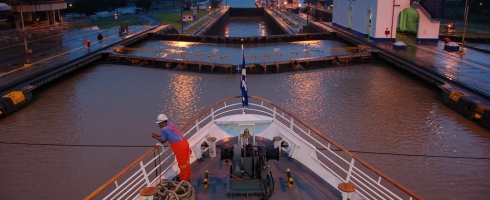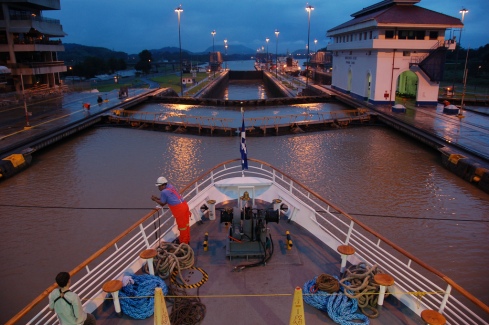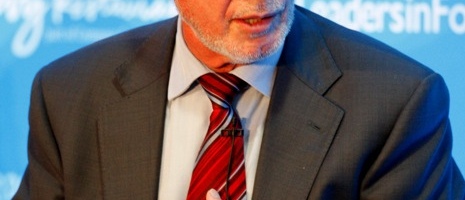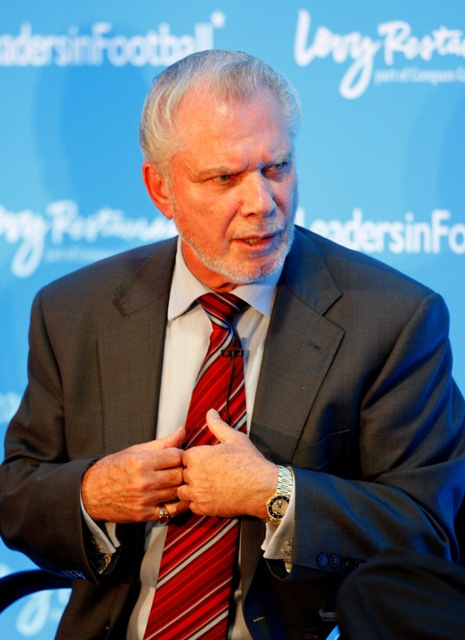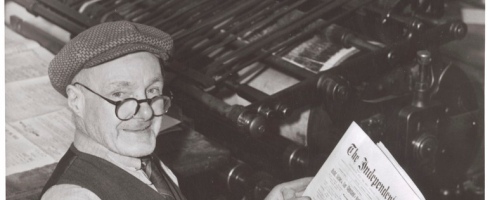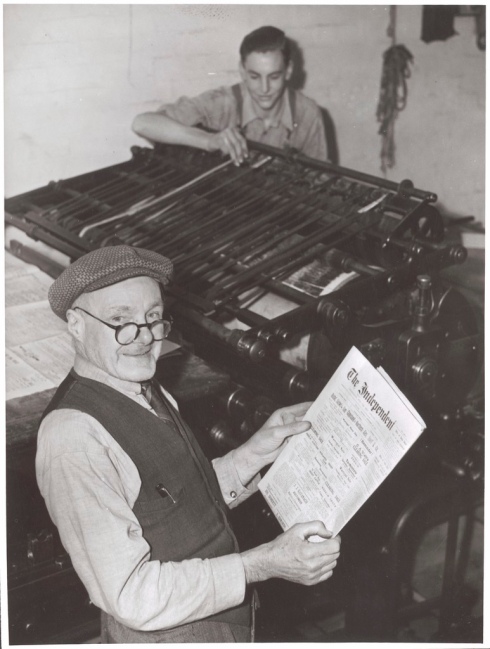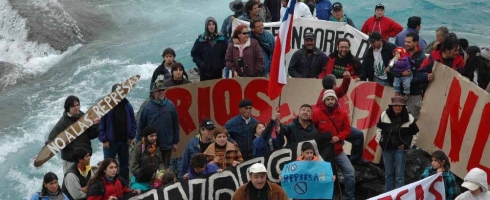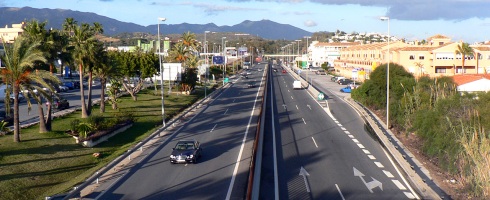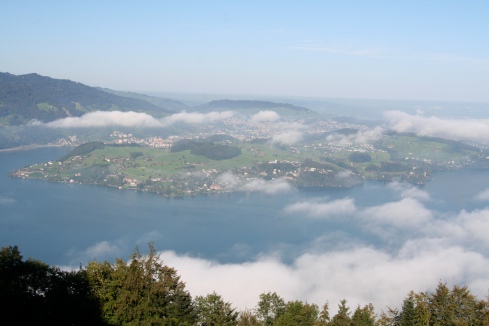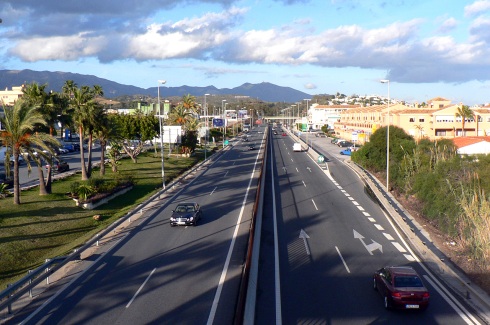One of my contacts tweeted recently about having found himself sat next to Lindt’s UK finance director at a dinner, which reminded me of one of my favourite interview experiences when I worked at Campden FB, a magazine for wealthy business families. I flew to Zurich to chat with Milan and Thomas Prenosil, who inherited the country’s oldest chocolatier, Confiserie Sprungli – the founding family of which is split into two branches, one of which is the better known Lindt chocolate brand. If you look on the back of one of those Lindt Excellence chocolate bars, you’ll see the manufacturer name ‘Lindt Und Springli’, with their family crest.
I came away from the interview with a huge box of chocolates and macaroons – not bad for a day’s work. Have a read.
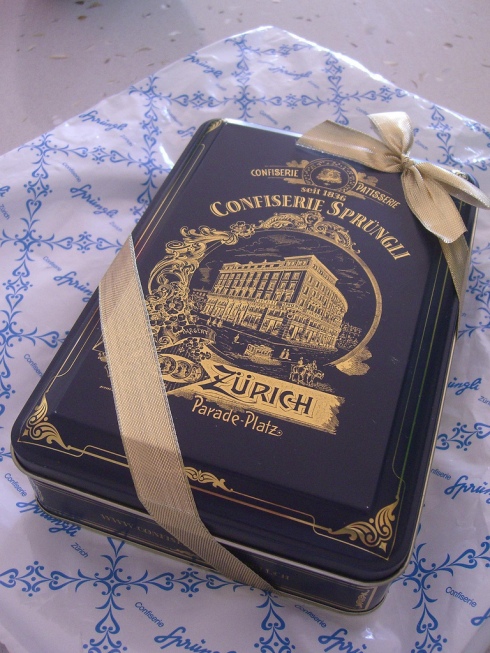
One of many treats from Confiserie Sprungli. Flickr.com/avlxyz – http://www.flickr.com/photos/avlxyz/
Switzerland’s oldest and most revered chocolatier Confiser Sprungli has an international reputation for excellence, but remains a one-town operation as part of its strategy to maintain exclusivity.
The world-famous Bahnhofstrasse, in the heart of Zurich, was once the most expensive mile of real estate in the world. The traditional home of Switzerland’s private banks, with vaults of gold and silver sleeping underneath the tram lines, it is now somewhat of a baroque Rodeo Drive save for a little piece of Swiss history standing where it has for nearly 200 years – the legendary confectioner and bakery, Confiserie Sprüngli.
One hundred percent owned and run by two family branches, Confiserie Sprüngli has supplied royalty and Zurich folk alike with the finest chocolates for 167 years, made by hand to secret family recipes. Having never traded outside of Zurich and with no intentions of going global, the people of Sprüngli’s home town will continue to enjoy almost exclusive access to that rare thing in this commoditised, homogenised world: a little bit of luxury and arguably the most exquisite chocolate to be had.
This is one family business that challenges the size/success ratio. In 2002 turnover reached €47 million through just 14 shops in Zurich. The family have always maintained that they will only ever operate out of Zurich and never branch outside Switzerland. That strategy may at first seem conservative, but is in fact a clever way to preserve the most important part of the Sprüngli brand – exclusivity – and has certainly not stopped a glittering reputation for excellence unravelling across the globe. Visitors to Zurich report their experience of Sprüngli in online travel guides as “out-of-this-world,” having to be “tasted before it can be believed”.
One may assume, then, that the secret to this family businesses’ success is clever marketing or expensive PR. In fact, the current sixth generation leaders – brothers Milan and Tomas Prenosil, 40- and 37-years old respectively – reject these ideas, sticking to the performance of their brand as the sole promotional tool. And it really works.
The Sprüngli story started in 1798 when David Sprüngli took up a trainee position in the patisserie Konditorei Vogel, in Zurich Old Town, owned by the famous painter Johann Vogel. Vogel had no children and in 1836, sold the patisserie to David, who with his son Rudolf, renamed it Sprüngli & Sohn and moved it to premises on the Paradeplatz (a site now adjoining the Bahnhofstrasse). The father and son team picked a strategic position in the Paradeplatz, hoping to make customers of the commuters from the railway station which was planned to be built there. However, their hopes were initially dashed when the station was built elsewhere. But a rash of construction at the site sprung up to create the Bahnhofstrasse, and the pair soon found themselves with a flourishing business in the best part of town. Chocolate production began at the Confiserie in 1845; the Sprüngli’s could not have predicted how pivotal a move it would turn out to be.
The Prenosil family joined with the Sprüngli’s when they settled in Zurich from Prague in 1968, and Milan and Tomas Prenosil’s aunt – their mother’s sister, Katja – married Richard Sprüngli, the fifth generation descendent of David Sprüngli. Richard and Katja never had children, but their nephews Tomas and Milan had grown up around the business, spending summers working there in their teens to earn some money, thus becoming the heirs apparent. In 1994, Richard appointed Milan director of marketing, communications and sales for the company, replacing his non-family predecessor who was retiring. Tomas, who had also been working in the factories for some time previously, followed his brother into management of the business two years later, becoming director of operations in 1994. Milan later became President and remains so today.
Both brothers sit on the board of directors alongside Richard and Katja, with an additional two non-family executives. CFO Werner Glauser has worked with the family for two decades, assisting the brothers in day-to-day management. Stanislaus Scherrer has worked for Sprüngli for ten years and will replace Glauser when he retires in 2004. A management and financial advisor, Dr Ernst Kilgus – a professor at the University of Zurich and the former president of the Swiss Banking Institute – completes the board.
Milan’s wife Sacha is not a board member but runs a two-person team within Sprüngli’s ‘Atelier’, designing specialty and seasonal packaging and gift ideas. The Confiserie changes much of its packaging monthly, and this is managed by the Atelier. It is a small but key area for the company as a luxury brand, and as the brothers say, important in times of market downturn when consumers still seek out small luxuries. High-quality, innovative products and packaging is the company’s lifeblood, and the backbone of its central philosophy: simply, to remain Switzerland’s best luxury chocolatier.
The brothers were fortunate to have taken individual interest in the business from a young age, and as fate would have it, their paths in life had always been intertwined in more ways than one. “The funny thing is that Milan and I have always done the same things throughout our lives – at school, then when we joined the military, and now we work together,” Tomas recalls, fondly. “After the military I studied law and then my uncle asked me if I wanted to join the company. I had already been working in the factories in the summer, but I had kept my mind open until then because I was not sure what I wanted to do. After I finished school my interest grew and I noticed the interesting dynamics, even in this traditional business.” Milan adds that he had always wanted to join the business since childhood. “And somehow, we love it.”
Setting the tone for commitment, 87-year old patriarch Richard Sprüngli still comes to work at 6am, five days a week at the headquarters on the Bahnhofstrasse. This is testament to his love for the business he has grown but is also illustrative of his approach to the successorship process. When Milan and Tomas joined the company almost a decade ago, Werner Glauser and the brothers devised a rota between himself and the brothers for directorship that would allow his nephews to run the business their way, while allowing him to observe and mentor if needed. While Milan is the president and Tomas runs the operational concern, the brothers and Werner Glauser take six-monthly turns at the highest management position, a kind of CEO role. Unorthodox it may seem, but for a management team unified in their wish to see Sprüngli remain fully family controlled and successful with it, ensuring a smooth handover was simply a prudent risk management strategy.
The brothers agree. “The idea of the rota was to separate the operational and strategic parts of the business, and to renovate the organisation. After about five years our uncle realised where our strengths were,” says Tomas. The brothers note that they abhor the idea of family successors sitting on positions in companies they are incapable of fulfilling. “We earned our credibility when we were given responsibility at first, and then my uncle reorganised the management to create our positions for us,” adds Milan. “Until that point, it wasn’t clear that we could do it.”
It is clear at this point that they can do it, and that they make a strong team. One might expect a divergence of interests somewhere, or at least a glimmer of ego, but their unified ethics and passion for the company is heartening in a climate of corporate disarray. “[When we were handed management of the company] we took it very seriously; this is a gift, to sit here and run this company. Many family business successors our age are still hanging around, waiting to be told what to do,” Tomas explains. “I think what is very important when two brothers are running the family business is not to just sit on the board and take money from the company. We are responsible for this company, and even more so because we are not blood relations.”
The brothers’ biggest challenge this year has been increased competition from both local boutiques and national players in the food service industry, such as Swiss supermarket giants and national and international chocolate brands, breaking into the niche for luxury chocolates with luxury packaging but doing it at bargain-bucket prices. Rather than taking emergency cost cutting measures, the Prenosil brothers simply stepped up their existing competitive advantage – the strength of their brand. “These guys try to enter our niche, so competition is high. We need to be careful with this situation as it demands a very clear profile of our strategy, because we’re not as powerful in financial issues,” Tomas explains. “These companies put millions into marketing strategies that we don’t have. What we do have is high quality products and the best service, and that’s how we advertise ourselves.”
Tomas expresses his dismay regarding the way some of Sprüngli’s large, corporate rivals have recently tried to sell themselves as Sprüngli-esque boutiques. “Sometimes you see TV adverts where companies appear to be making their chocolates by hand. They are generating a brand profile and compared to us, their prices are low. People’s imaginations are provoked by this marketing, but we never want to market something that is not a reality,” he explains. “Our products really are hand-crafted and therefore impossible to sell at their prices.” Milan concurs; “Everyone’s gone crazy in the niche markets with beautiful packaging and chocolates that look handmade, but they aren’t. In difficult times like now, big players are more of a competitor because people think twice before spending a franc.”
Ninety-eight percent of the Swiss population recognise the Sprüngli brand, a surprising feat considering the lack of presence outside Zurich. The name is synonymous with the highest quality products, and indeed, such a reputation is hard to contain. The brothers are well used to receiving franchise enquiries from across the globe, and while some companies would jump at the chance to grow so quickly, the Prenosil brothers believe going global would see their company become the antithesis of everything it has stood for and destroy its unique sales edge. “Perhaps once or twice a month someone calls us from India, Japan or the US asking if we can deliver our products for a retail business or set up a franchise with them. In this sense we are very strict and we focus only on the consumer. Ours is not a wholesale or retail concept – it is always very private and personal,” Tomas says.
That doesn’t mean Sprüngli does not take advantage of good business opportunities. A small internet service set up in 1999 provides a mail order facility and delivers to the door within three days; a large percentage of its customers are situated on the Arabic peninsula. By way of making connections with the rest of Switzerland, the company will open its first non-Zurich boutiques in Switzerland’s Basle and Zug train stations by the end of the year. Again, small steps, but one can be sure they were planned and pondered upon for some time before the move was made, being as location is such a key facet of the brand. “We do not intend to pepper Switzerland with Sprüngli shops,” Tomas makes clear. “We’re not a McDonald’s.”
It is this concern for Sprüngli’s exclusivity that flavours every process and plan the company uses. Fresh cream and butter are the main ingredients of 40% of its product palette, delivered from the same supplier in the mountains just outside Zurich that the family has used for many years. This means the shelf life for many Sprüngli products is just 24 hours, and as a result, global expansion seems unrealistic. For one thing, the company would need to find equally reliable suppliers of raw products in the relevant countries, which in turn would make quality and freshness regulation difficult. Thus, as Milan and Tomas are all too aware of, the end of the famous Sprüngli selling point. “We are absolutely addicted to high end products, quality and innovation,” Milan points out. “We cannot transfer our croissant and multiply it by a few million every day while keeping it the size it is. We are in such a competitive daily business, a local business, that if the croissant is not good or the cake is not fresh, then our customers will go to someone else.
“But we are not so ignorant that we believe people will walk ten miles for our products, because they won’t.”
The Prenosils are definitely a long-term thinking team, putting the longevity of the business ahead of everything else. Their own succession is a long way off – Milan’s three children are all under 10 while Tomas is not a father. But they have made provisions to see off any threats to the total family ownership as it stands by setting up shareholder contracts, which they note as the biggest challenge they’ve faced in their tenure. Richard brought the subject up with the family three years after installing his nephews in their roles, feeling that the future of the family’s ownership should be protected against any unforeseen events. The contracts ensign all shareholders to strict conditions for selling their shares to other members of the family and outside sale is prohibited. “It was a natural process, especially for Tomas and myself,” Milan reveals. “The first priority is the company, its financial prosperity and independence, then the family and private life. That’s as it should be and I hope the way it always will be, but making that distinction is always the biggest problem for family companies.”
Tomas adds that as an owner-manager company, maintaining a healthy brand is a double-edged sword, being as important to the future of the business as it is to the shareholders’ personal reputations. “As a family business, we feel responsible for every customer, and we feel our products and service should be personal. When someone is not satisfied with our products, it feels personal – especially for our uncle, who shares the name. We feel the same but the name makes the deal stronger,” he reveals.
So, how do these emotional issues affect the internal workings of this family enterprise? “You need very strict rules when you work so closely with your family. You need guidelines and transparency. The reason many family businesses fail at the third or fourth generation is because of money and because people take from it what they want for themselves,” Tomas says. “We invest more or less everything we have in the company and we would never consider changing that to endanger the business.
“If we were not family run, we would definitely be more financially focused. Some of the things in this company are there for image reasons; if you were to analyse their cost, you might well cancel them. But we are going to keep them because they belong to the family, to the tradition and to Zurich – we want to retain its luxury and we are too long-term thinking to act that way,” the brothers agree with trademark honesty.
Milan and Tomas have also invested a lot of time researching their competitors, both at home and abroad. Tomas once spent six months touring US universities and companies, and has spent time in the East assessing the business there. If anything, these exercises helped the brothers to realise they were on the right track. “[When travelling] I realised there are three things that the Confiserie Sprüngli is always very focused on: continuity; high quality; and a long-term perspective and relationship with our customers,” recalls Tomas. “We never focus on one-day results like so many companies today – taking the long-term perspective has changed our company completely. Our uncle once said that the problems never change, but that it is how we solve them that changes. Vision and strategy is another thing; we have changed the way we run the company drastically from 20 or 30 years ago, adapting to the times, but our vision has stayed the same.”
The Prenosils note a final time their absolute belief in staying local as a cornerstone of their brand. “To have such a popular and exclusive brand known worldwide when we only operate in Switzerland is a very exclusive position,” Milan notes proudly. “Many brands that have gone international are not special anymore. We want to remain special.”


